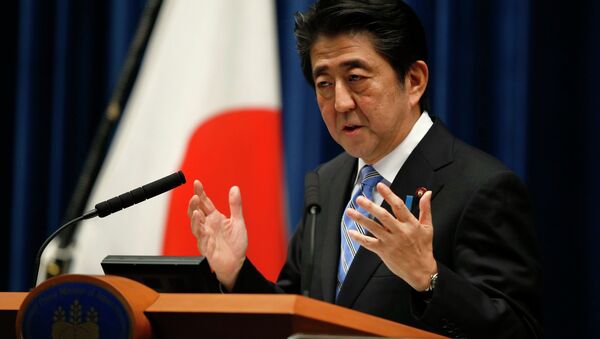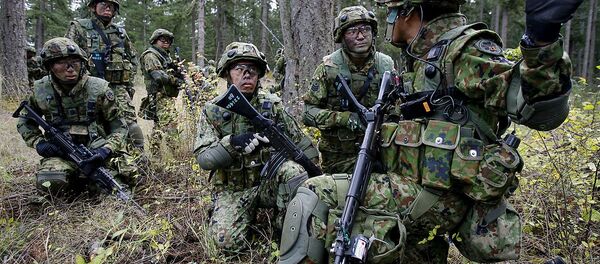According to the report, 13 of the country's 19 government ministers are members of Sosei Nippon (Japan's Rebirth), an inter-party political group which was formed in 2007 by the late Shoichi Nakagawa, Japan's former Minister of Finance.
Nakagawa was a key adviser to Shinzo Abe during his first term in office, and was Chairman of the Policy Research Council of the Liberal Democratic Party (LDP).
Members of Sosei Nippon pledge to "protect Japanese traditions and culture," "rethink the postwar order," and "protect Japan's national interests and make Japan a country respected by international society," according to a breakdown of the groups in Japan's houses of parliament published in the Asia-Pacific Journal.
Victory in the Japanese elections in July gave Abe's LDP and other conservative parties two-thirds of the seats in Japan's upper house. In 2014, Abe and his coalition partner Komeito received almost two-thirds of the seats in Japan's lower house.
After the latest elections, Abe called for a debate on rewriting the country's pacifist constitution, which has not been amended since 1947. With a large parliamentary majority, Abe's government could potentially get parliamentary approval for such a step.
"This organization is an element of Japan's internal political culture, a kind of 'club for the like-minded,' whose members get together and discuss issues and new ideas including new alternatives for development," Pavlyatenko explained.
"They are active in attracting young people and new party members, and (the organization) contains some nationalist groups which seek to revise the outcome of the war, the constitution, the revival of the spirit of the past and so on. There are also some parliamentary groups which have been formed to achieve such aims. As far as I am aware, (Foreign Minister Fumio) Kishida has his own group, and he is one of the pretenders for the post of prime minister."
"At one time, Shinzo Abe was leader of Sosei Nippon, and now he is a member of Nippon Kaigi (Japan Conference), which has almost 40,000 members. I know of at least six or seven such organizations, perhaps there are more. It is difficult to say how much they influence decision-making, but mostly they act as a discussion club, where they test out new ideas even if haven't become law yet. I think Sosei Nippon is one of these kinds of groups," Pavlyatenko said.
Japan's pacifist constitution was established during the US occupation of the country in 1947. Imperial Japan surrendered to the Allied powers in August 1945, following the nuclear bombings of Hiroshima and Nagasaki by the US, which marked the end of the Second World War in the Far East. Japan was then occupied by the US until 1952, while US bases remain in the country to this day and currently house around 50,000 troops.
In February this year, Shinzo Abe called for the constitution to be rewritten because of a perceived contradiction between the existence of Japan's 150,000 strong Self-Defense Forces (JSDF), established in 1954, and the constitutional ban on Japan maintaining armed forces.
"There is the view that (Japan should) address the situation, in which 70 percent of constitutional scholars suspect that the SDF is in violation of the Constitution," Abe told Japan's lower house.





